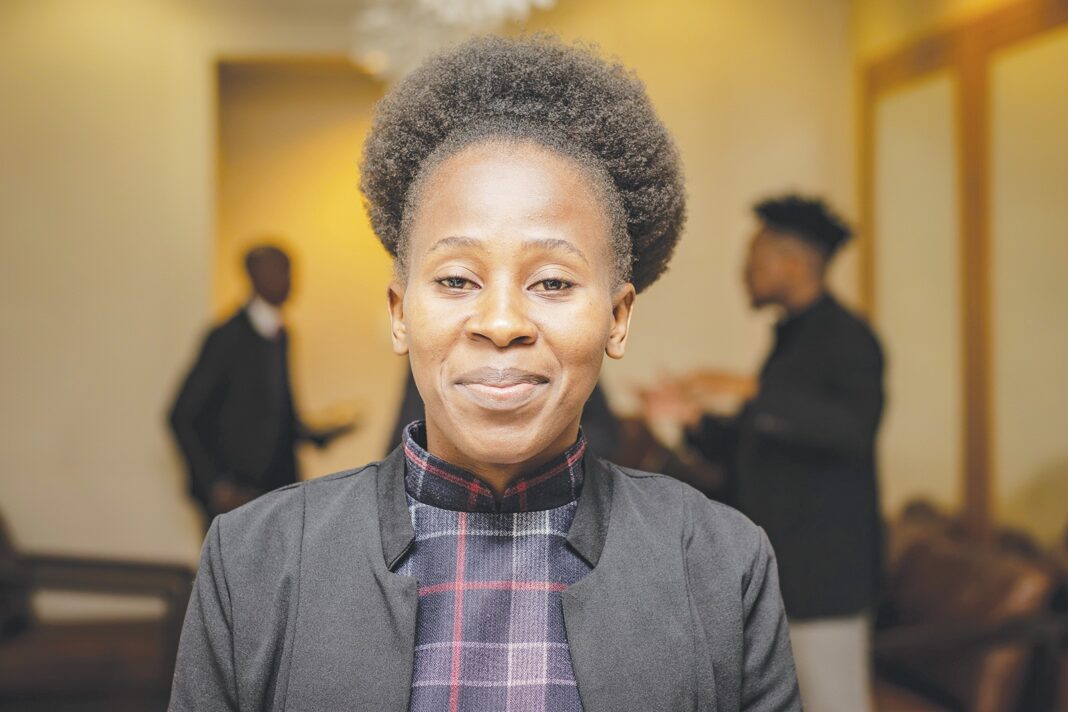By Matṧeliso Phulane
The minister of communications, science and technology Tṧoinyana Rapapa has announced plans to strengthen the media profession in Lesotho, in line with the media policy which has already been tabled to the parliament.
Rapapa said according to the Broadcasting Code 2022 which is yet to come into operation, “a broadcaster shall, when applying for a license, submit organizational structure of the radio station; profiles of the staff members with their academic qualifications and level of experience in broadcasting which shall be all prescribed in regulation 5(2) and a capacity building programme.
“Adding to that, a broadcaster shall recruit and retain presenters who have certifications confirming journalistic training from a registered and recognized instituition; and editorial staff who have certification confirming journalistic training of no less than two years of continuous training from a registered and recognised college or university. Within 24 months of coming into effect of the code, all registered and licenced broadcasters shall apply to this code,” Rapapa said.
In an interview with theReporter, a student studying media at the Institute of Extra Mural Studies (IEMS) Rethabile Khojane, gave the minister’s decision the thumbs up.
“This media policy is really going to be beneficial to us in terms of job creation because we are unemployed as people who are well trained in media yet there is someone out there doing our job.
“That alone ruins our reputation because it projects journalism as a pathetic course that one should not even consider studying whereas it is a sacrosanct with has its own standards and ethics,” Khojane said.
He added that the policy it is going to open great opportunities for journalism graduates to immerse themselves and change media conduct and erosion of professionalism in reporting. This, she argued, will benefit the country as a whole, considering the way things are done in broadcast media.
“Unprofessional journalists do not have enough skills to determine what is a news value, that is why they consider the political beat as the only news. As a result, they create political polarization within the country, so there is quite a lot of division among people because the media is driven by people who do not have academic qualifications,” Khojane added
In addition, she said it is her wish that professional journalists should be given an opportunity to create media programmes and content in radio stations and Lesotho Television, where there seems to be a yawning gap in terms of content that is relevant to the contemporary issues in the country.
“We, therefore, consider this code a good milestone which will jolt the government to elevate the media as a priority in our country,” she concluded.
On the other hand, one of the local media practitioners Shadrack Tsokeli – a radio presenter at People on the Move Radio (PMR) FM – told this publication that he was not aware of the policy. He said it had come as a surprise as he and his colleagues were never even told about it by their manager.
“This media policy is indeed an eye opener because many of the untrained journalists were overly comfortable; however, it is a good decision which I hope many people will embrace,” Tsokeli said.
He added that he is ready to improve his journalism skills, even if he were to ‘start tomorrow’ because – in his opinion – there are a lot of weaknesses in media outlets which are awash with media practitioners who are influenced by politicians at the expense of media ethics.
“One of the major concerns is fake news, which I hope will stop if all journalists are well-trained. I wish such training could be offered as soon as possible even if it cannot be specifically in the form of a certificate; any kind of trained will be welcome,” He said.
Tsokeli concluded that what matters in broadcasting is how a person is able to present news, or any tasks which then require talent or reading skills. He said in some cases even qualified journalists themselves fail to pronounce words and names of the people correctly.









